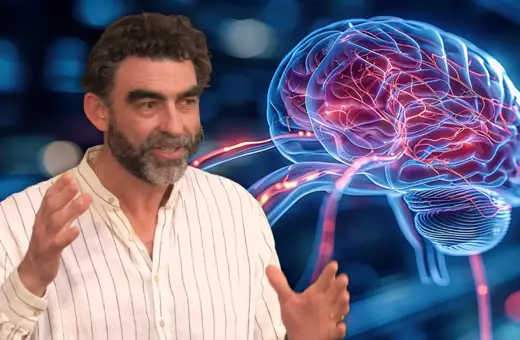Why do we sometimes act against reason, even to our own detriment? Yale Psychologist and author Paul Bloom highlights the paradoxical virtues of perversity, the limits of rationality, and what it really means to be human. In conversation with Charlie Barnett, he reflects on Augustine, algorithms, and the fine line between madness and autonomy.
In this wide-ranging interview, Paul Bloom explores how our best qualities, reason, morality, and compassion, can be paradoxically undercut by the very forces meant to protect them. Looking at his work on Perversity, he reveals the tightrope between chaos and autonomy, making human goodness not just aspirational but fragile, easily distorted, often misunderstood, and vulnerable to both logic and emotion when taken to extremes.
You’ve said that perversity can be both a good and an optimal strategy. Can you explain what you mean by that?
For the sake of being bad or silly or unreasonable. The classic story is of St. Augustine who goes into an orchard with some friends and steals some pears. He wasn't hungry, he just said it was to do wrong. And a lot of perversity is just awful. It makes the world worse, it makes the whole person suffer. You don't want to have a reputation as somebody who does these erratic, stupid things.
So why might someone choose to behave perversely, even when it seems irrational?
Sometimes it could have an advantage. And sometimes a perverse act could impress other people with how bold you are and how courageous. Sometimes a perverse act can... if you're in a rut, doing something unpredictable and a little bit crazy might be the way to get out of it. And I think most of all, perversity at its best is a way of expressing our autonomy, our freedom.
___
I think perversity makes you a little bit of a worse person. But maybe it makes you more interesting.
___
If someone always does the rational thing, what do they risk?
Suppose you always do the right thing, the rational thing. At some point it might occur to you—you could be replaced by an algorithm. And nobody wants to be replaced by an algorithm. Sometimes you figure, the right thing to do is this, the rational thing to do is this. I'm going to do that. And it's a way of showing yourself off to be human.
This sits interestingly alongside your book Against Empathy, where you argue for rational compassion. Does this contradict that?
That's a good question. I'm a complicated guy. The argument about empathy—and a lot of what I’ve been saying—is that it’s not enough to be good. To be a good person, you shouldn’t be so swayed by your feelings and emotions. You should think about the consequences of your actions. You should try to take away the bias emotions give you. That’s the core of my argument against empathy—we’re better off with more diffused compassion.
So perversity isn’t about moral goodness?
The case for perversity isn’t a moral one. I think perversity makes you a little bit of a worse person. But maybe it makes you more interesting. I think there’s a clash between an interesting person in an interesting world, and a good person in a good world. And perversity is a little push for the interesting.
___
Sometimes, being irrational is itself a rational behaviour.
___





















Join the conversation